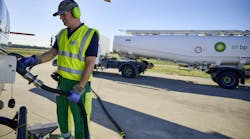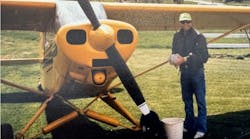Jan. 03--A Federal Aviation Administration decision to permit testing of drones in Texas and at other sites throughout the country will open the door to more use of unmanned aircraft by oil companies.
The oil industry has been a leader in the use of drones for surveying land and equipment. ConocoPhillips received a permit from the FAA for the first-ever commercial drone flight in U.S. airspace, which it conducted in September.
Commercial drone flights otherwise have been prohibited in the Unites States.
ConocoPhillips flew a drone over Alaska's Chukchi Sea in a 36-minute flight that tested the aircraft's sensors and navigation systems.
It launched the 40-pound drone from a ship in Arctic waters about 120 miles off Alaska's north coast, according to the company.
"We are still figuring out all the ways drones can be valuable to us from an operational and economic standpoint," John Hand, a technology program manager for ConocoPhillips, said in the most recent edition of the company's Spirit magazine. "But our main interest is in the ways they can spare our people from exposure to potentially hazardous conditions. That will always be their biggest value."
Drones also can operate at much lower costs than manned aircraft.
Inspecting an Alaska pipeline with a manned aircraft costs about $8,000 per hour, compared with $300 an hour for a drone, ConocoPhillips said.
Drones also remove the complications of sending humans into rugged terrain to inspect and examine equipment and oil fields.
Additionally, drones can fly lower and slower than manned aircraft, allowing for more detailed inspections of pipelines, Hand said.
The oil industry has been studying the use of drones in a variety of capacities.
Models on display at the 2013 Offshore Technology Conference in Houston included a programmable plane that could examine onshore oil fields. Other types of drones included underwater robots that could survey pipes and other systems along the seafloor.
The Federal Aviation Administration said Monday it will allow testing of commercial drones at sites in several states, including Texas A&M University-Corpus Christi. The agency also approved testing at sites in Alaska, Nevada, New York, North Dakota and Virginia.
The oil industry is especially active in three of those states: Alaska, Texas and North Dakota.
Copyright 2014 - Houston Chronicle


